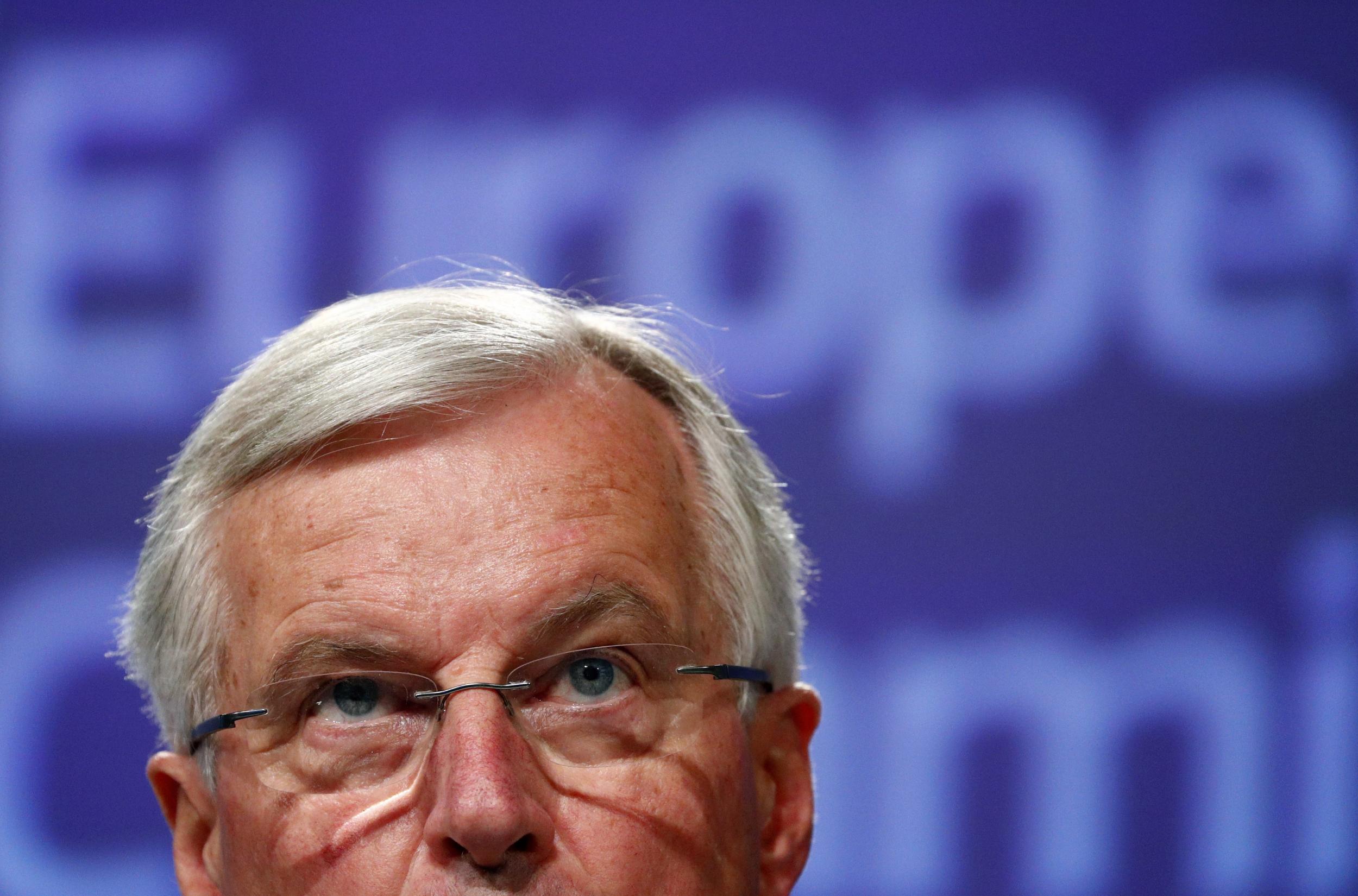Why a Brexit extension could break the deadlock
One possible landing zone for the the two sides relies on extra time being available, says Jon Stone


Both sides in Brexit talks agree on one thing: there’s been little progress on any of the hardest issues since trade talks began.
The question of an extension to the transition period has inevitably raised its head: under Boris Johnson’s withdrawal agreement, any delay has to be agreed by the end of June at the latest.
That’s now next month, but the UK insists it won’t ask for one. There is no sign of the Covid-19 crisis being used as an excuse for a change of course.
One theory is that the real deadline is December – that January is a false summit, and that things could be worked out somehow if there really was a cliff edge as talks truly run out of road.
But one senior UK source close to negotiations says this isn’t part of British thinking, and that it wouldn’t matter anyway.
“It’s a matter of EU law and the withdrawal agreement that it is immutable and that’s the cut-off point,” the UK source said.
“In a way it doesn’t matter to us because we don’t want an extension, we’re not going to ask for one and we wouldn’t accept one if it was offered. The legal reality – certainly this is our assumption – is that 30 June is a real deadline.”
To understand where an extension fits in to talks, it’s necessary to understand the impasse.
British negotiators are clear that they won’t be signing up to any agreement that ties Britain into EU standards. The EU is clear that they won’t be signing an agreement that doesn’t involve the UK respecting EU standards in some way – a “level playing field”.
This, Brussels says, is necessary because the UK is close by, highly integrated with the continent’s economy, and is aiming for tariff-free access to EU markets.
Simply, EU countries don’t want to put themselves at a competitive disadvantage without tariffs to protect their own producers in the event the UK starts pumping its companies full of state aid and running down standards to do things cheaply – as some Tories have hinted they might try.
The UK’s response has been to claim it isn’t looking for anything special, and that it just wants a free trade agreement like the one Canada has, with fewer conditions on the standards it has to uphold.
Cabinet Office minister Michael Gove even suggested earlier this month that the UK might be happy to accept a deal that brought back some tariffs and quotas with the EU, if it meant a relaxed level playing field.
Canada’s deal is notably like this – it does not eliminate the most politically difficult (and thus important) tariffs.
So could both sides agree to simply make the deal less ambitious and keep some tariffs in exchange for fewer conditions on the UK? This looks like a tempting landing zone, but it comes with its own problems – and they make an extension very relevant.
Despite being less ambitious, a more limited agreement would counter-intuitively take longer to negotiate. When an agreement eliminates all tariffs, is done on principle: agreement is made at political level with safeguards both can agree to, and both sides agree there is no need for tariffs on anything.
But without this generalised agreement that makes both sides comfortable with no tariffs, negotiators have to go through every product tariff line-by-line. This generally involves haggling over every single item anyone cares about across thousands upon thousands of different permutations, each with their own political implications for both sides (and one side is 27 countries). In Canada’s case, this process took eight years.
So the most obvious potential landing zone to trade talks requires talks to be much longer. But without an extension, the sides don’t get there.
Michel Barnier acknowledged as much on Friday, telling reporters: “Such an approach as proposed by Mr Gove would require detailed negotiations, very sensitive negotiation on each and every tariff line.
“We have got experience of that recently with Japan and Canada: and we know that it takes years to do that. A negotiation of that kind could only be possible with an extension to the transition.”
How does the UK feel about this? The senior UK source says: “We’ve always made it clear that if an agreement can’t be reached then trading on what we call Australia terms is perfectly doable and satisfactory.” That reference to Australia is for no-deal.
Stranger things have happened, but at this point the UK does not look likely to accept an extension next month. Equally, neither side looks likely to relent on their main red lines. And, to be honest, neither side is acting as if they are that fussed about Britain leaving the single market without a deal.
Join our commenting forum
Join thought-provoking conversations, follow other Independent readers and see their replies
Comments
Bookmark popover
Removed from bookmarks